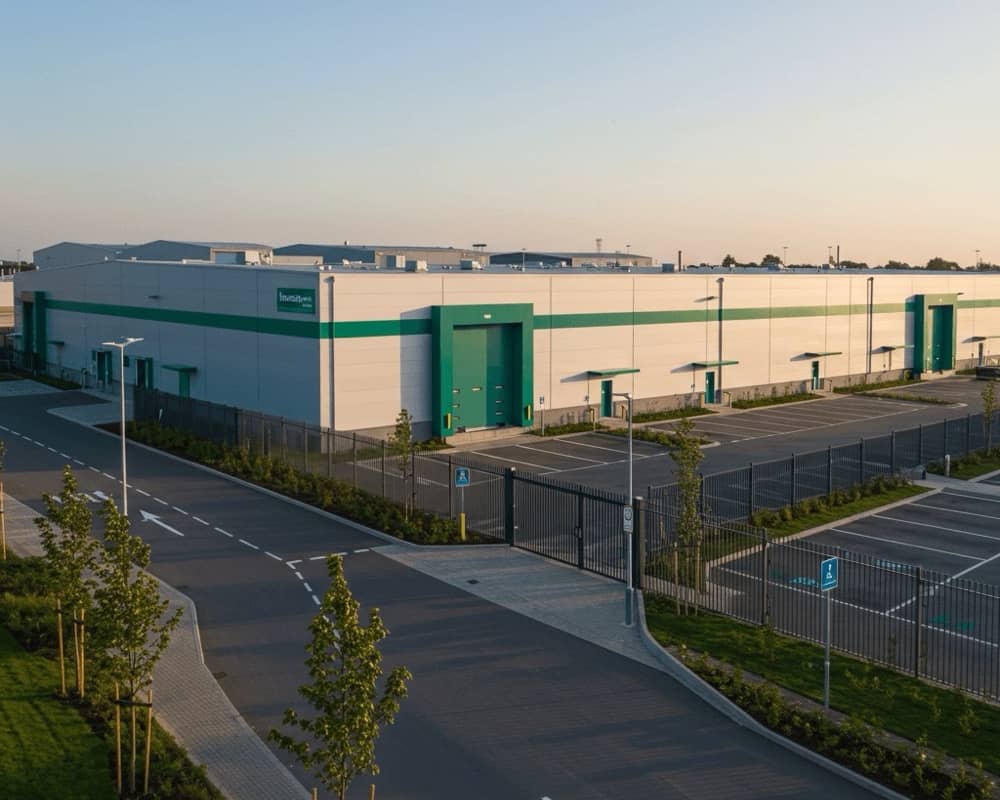Industrial Estates: Building Blocks of Local Economies
The Role of Industrial Estates in Economic Growth
Industrial estates the building blocks of local economies are more than just clusters of buildings. They play a central role in shaping local economies by providing businesses the infrastructure they need to grow and thrive. From supporting manufacturing hubs to acting as spaces for warehousing, distribution, and trade, industrial estates create the foundation for economic activity at both local and national levels.
Think of industrial estates as ecosystems. They bring together small independents and multinational corporations alike, allowing diverse businesses to access the resources they need to flourish. Factories, workshops, storage units, and office spaces work together to support industries ranging from logistics and retail to tech and manufacturing. These industrial hubs are also a magnet for jobs, reducing unemployment levels in their respective areas and supporting entire communities.
For business owners, industrial estates offer an appealing mix of practical facilities and strategic locations. Whether you’re a start-up needing flexibility or an established firm looking for a highly functional, customisable space to expand, industrial estates often provide exactly what’s needed.
What Makes A Great Industrial Estate?
Not all industrial estates are created equal. The most successful estates share certain qualities that set them apart. Here are some of the essential elements businesses look for when deciding on an industrial location:
1. Strategic Location and Connectivity:
Proximity to major transport links such as motorways, rail lines, or ports is an essential factor. Having an industrial unit in a well-connected area helps businesses streamline operations, whether they’re shipping goods across the country or ensuring deliveries reach customers on time. Areas like Millfield Estates’ properties leverage excellent connectivity to make this possible.
2. Flexibility of Facilities:
Modern businesses need adaptable spaces that can be customised to fit their specific requirements. An industrial estate that offers a mix of unit sizes and layouts can cater to a broader range of industries, boosting its appeal.
3. Quality Maintenance and Management:
Poorly maintained spaces can increase operational headaches. Business tenants want to be confident that their landlords are proactive with property upkeep and quick to respond to any issues. For example, Millfield Estates is noted for its hands-on approach, ensuring tenant needs are met swiftly and professionally, helping companies focus on their goals.
4. High Standards of Security and Accessibility:
Secure sites with easy access make properties more attractive to businesses and their customers. The importance of a reliable and safe environment cannot be overstated, particularly for industries relying on inventory storage or machinery on-site.
5. Added Features and Services:
An industrial estate that offers additional conveniences, such as on-site parking, communal meeting spaces, or even eco-friendly initiatives, provides an edge for businesses seeking long-term tenancy.
The Economic Ripple Effect of Industrial Estates
When businesses thrive on an industrial estate, the benefits extend far beyond the estate’s borders. Here’s how:
Local Job Creation:
Industrial estates bring with them a host of job opportunities. From skilled specialists and engineers to warehouse operatives and administrative staff, these hubs attract a wide range of roles. This creates steady employment locally, reducing reliance on long commutes and keeping money circulating within the area.
Boosting Supply Chains:
Industrial estates often house businesses that depend on one another. A manufacturer might need packaging suppliers, while a distributor relies on close partnerships with logistics providers. This accessibility creates robust, interlinked supply chains that benefit all parties involved.
Increasing Regional Attractiveness:
A high-quality industrial estate can act as an anchor, drawing other businesses to the region. As more companies move in, professional services and retailers often follow, creating busy commercial zones that lift the entire local economy.
Promoting Innovation and Growth:
Industrial spaces encourage collaboration. Different businesses working alongside one another can share ideas, resources, and innovations. This fosters fertile ground for growth and creativity, making industrial estates not only an economic backbone but also a hub for new ideas.
Why Tenants Value Millfield Estates
Located in prime areas across the UK, Millfield Estates has earned its reputation as a trusted name in property management. By combining a family ethos with a professional outlook, they’ve achieved a rare balance—providing tenants with modern, highly functional spaces while delivering a friendly and approachable service.
One marker of their exceptional service is their impressive record of tenant retention. Companies looking to secure long-term industrial space know how important it is to have a landlord who prioritises relationships and promotes stability. Millfield Estates exemplifies this, adapting to tenant needs and constantly striving to improve the experience for businesses based at their properties.
From trade locations in Greater Manchester to sensitive developments in London’s prestigious Mayfair, Millfield Estates commits to excellence across every corner of its portfolio. Their properties boast proximity to strong transport infrastructure, meticulous maintenance, and security systems designed to instil confidence in tenants, no matter their industry.
Adapting to Future Business Needs
Industrial estates must evolve alongside the businesses they support. With rising demands around sustainability, efficient space management, and technology integration, the future calls for industrial spaces that are forward-thinking and versatile.
Eco-friendly measures, such as solar energy and advanced insulation, are becoming standard expectations. Coupled with digital transformations like faster broadband provisions and smart building technologies, next-generation estates promise to reshape how businesses operate. Flexible leasing terms and ongoing maintenance by engaged landlords, such as Millfield Estates, further enable property tenants to plan and adapt confidently for years to come.
Here’s an article from The BBC on the Changing face of UK industrial estates
Making The Right Choice for Your Business Space
Finding the right industrial property is a major decision for any business. It’s about choosing a location that not only ticks the functional boxes but also contributes to long-term success. Trustworthy landlords and well-managed estates help create stability, allowing business owners to focus on growth rather than day-to-day logistical hurdles.
When considering options, look for partners like Millfield Estates who understand the needs of modern businesses and actively work to meet them. By fostering tenant relationships, offering customisable spaces, and ensuring high standards of care, they’ve set the bar for what industrial estates should represent in today’s economy.
Industrial estates don’t just house businesses—they empower communities. From driving employment to strengthening supply chains, they remain vital to building a resilient economy. The choice of the right space makes all the difference, and with the right partner, your business is set up for success.




